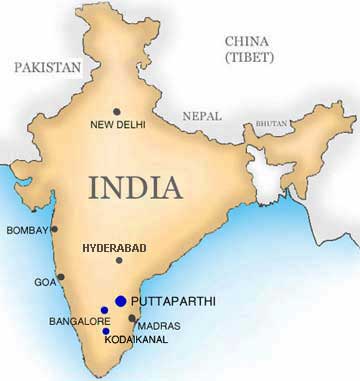Indian leaders to visit bomb-hit Ahmedabad, death toll rises to 49
 New Delhi - Prime Minister Manmohan Singh and other leaders were scheduled to visit the western city of Ahmedabad which had been rocked by synchronized bombings that claimed 49 lives, officials and news reports said Monday.
New Delhi - Prime Minister Manmohan Singh and other leaders were scheduled to visit the western city of Ahmedabad which had been rocked by synchronized bombings that claimed 49 lives, officials and news reports said Monday.
A total of 16 small bombs ripped through markets, residential areas, public transport and hospitals in the key city of the western Gujarat state Saturday. Eight similar blasts hit the southern Bangalore city a day earlier.
Singh, Federal Home Minister Shivraj Patil and Sonia Gandhi, chairwoman of the ruling United Progressive Alliance, were due to visit the city to assess the situation on the ground, Ahmedabad administration official Hareet Shukla said in a telephone interview.
"Besides reviewing security in the state, the leaders will also visit the hospitals in the city where more than 140 people are undergoing treatment," he said.
Meanwhile, four additional people succumbed to their injuries overnight taking the death toll to 49, Gujarat Health Minister Jainarayan Vyas told the PTI news agency.
But the police and local agencies said between 39 and 43 people died in the blasts.
"According to the information we have, 43 people were killed in the blasts and 159 are injured," inspector BB Koli at the Ahmedabad police control room said.
The atmosphere in the communally sensitive city, which witnessed widespread Hindu-Muslim riots in 2002, was tense Sunday as police dismantled three more live bombs.
Soon after leaders made appeals for communal harmony in the state, government troops marched in sensitive areas in Ahmedabad to instill a sense of security among residents and prevent a backlash by Hindus against the Muslim community.
Meanwhile, police intensified its hunt for the bombers. It seized a computer from Mumbai city from which an email by the little-known Indian Mujahideen group was sent five minutes prior to the blasts, claiming responsibility for the carnage.
The Indian Mujahideen said the bombings were a "revenge" for the 2002 Gujarat riots when more than 1,000 people, mainly Muslims, were killed and warned of more attacks against Hindus.
Indian Mujahideen, which security agencies believe is a "smokescreen" for the Pakistan-based Lashkar-e-Toiba militant group, also claimed responsibility for May's attack in the northern city Jaipur that killed 65 people, the first major attack in India this year.
On Sunday, Gujarat police announced its first arrest in connection with the bombings in Bangalore and Ahmedabad when it nabbed Abdul Halim, an activist of the banned militant Students Islamic Movement of India.
Halim was involved in the 2002 Gujarat riots.
In the southern city of Chennai, police arrested two suspected militants also believed to be involved in the serial bombings, the IANS news agency reported.
The suspects were named by another militant who was arrested with a large cache of explosives and planned to bomb trains and government offices on India's independence day on August 15.
Almost all major Indian cities, including the national capital New Delhi were on high alert Monday and security was tightened around religious places, government offices, airports and railways stations particularly in the states of Uttar Pradesh, Madhya Pradesh, Himachal Pradesh, Uttarakhand and Kerala. (dpa)